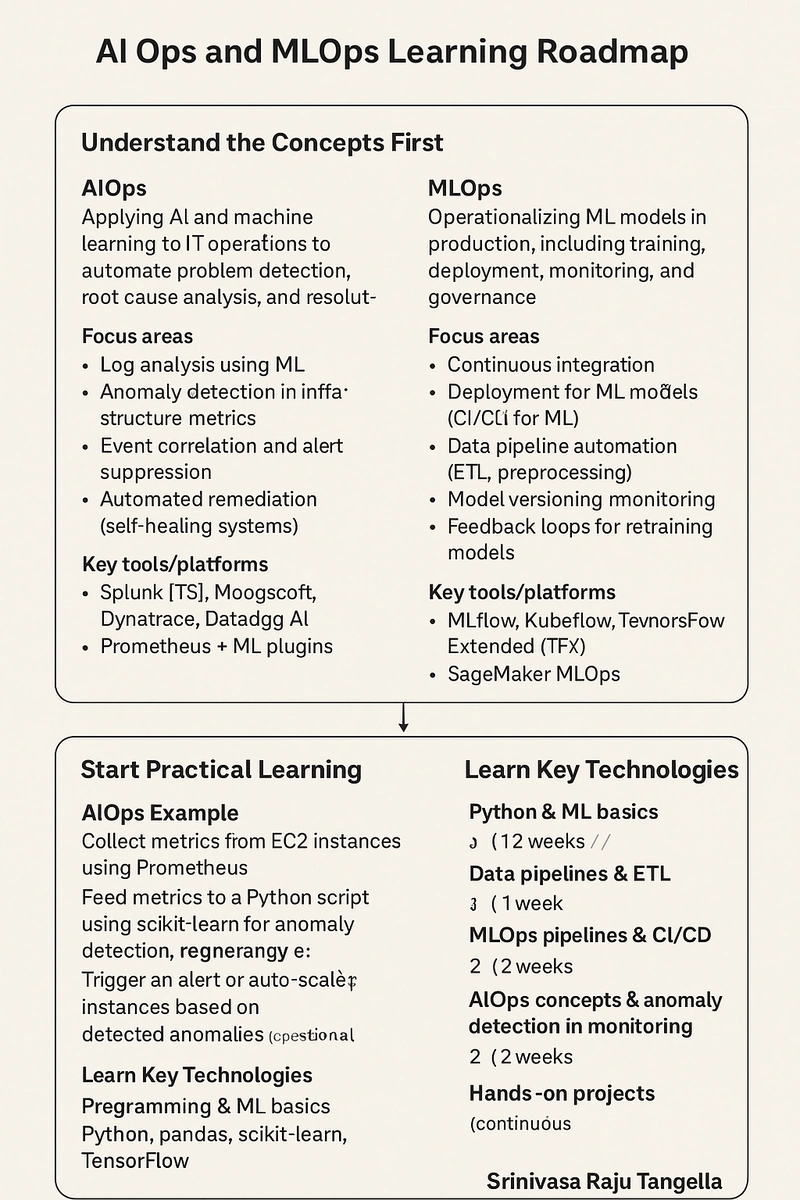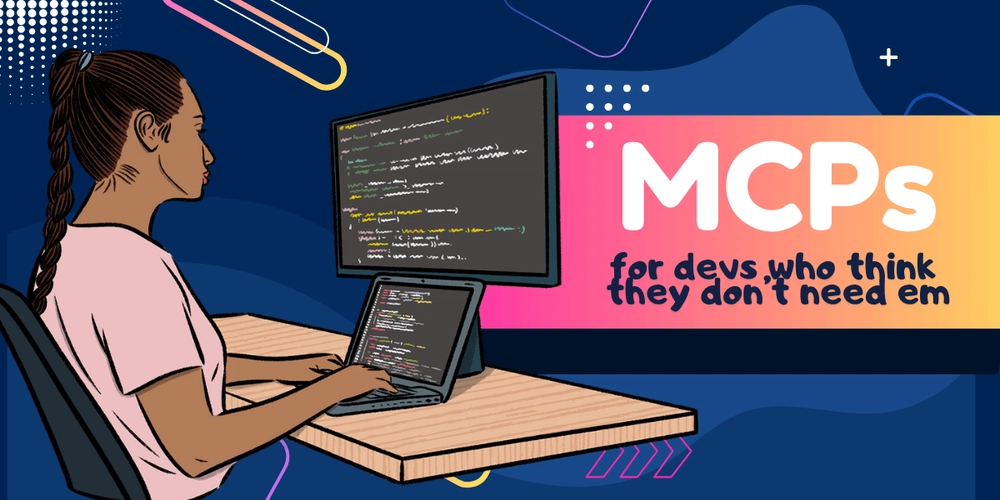- Understand the Concepts First
AIOps
Definition: Applying AI and machine learning to IT operations to automate problem detection, root cause analysis, and resolution.
Focus Areas for DevOps Engineers:
Log analysis using ML (predictive analytics)
Anomaly detection in infrastructure metrics
Event correlation and alert suppression
Automated remediation (self-healing systems)
Key Tools/Platforms:
Splunk ITSI, Moogsoft, Dynatrace, Datadog AI, Prometheus + ML plugins
Learning Path:
-
Basics of monitoring and observability tools.
-
Introduction to anomaly detection and predictive analytics.
-
Practice using ML models to detect anomalies in logs/metrics.
-
Build small experiments for automated incident responses.
MLOps
Definition: Operationalizing ML models in production, including training, deployment, monitoring, and governance.
Focus Areas for DevOps Engineers:
Continuous integration & deployment for ML models (CI/CD for ML)
Data pipeline automation (ETL, preprocessing)
Model versioning and monitoring
Feedback loops for retraining models
Key Tools/Platforms:
MLflow, Kubeflow, TensorFlow Extended (TFX), SageMaker MLOps, GitHub Actions for ML
Container orchestration for ML: Docker + Kubernetes
Learning Path:
-
Learn ML basics (supervised, unsupervised learning, regression, classification).
-
Understand data pipelines and feature engineering.
-
Explore ML lifecycle: model training → versioning → deployment → monitoring.
-
Implement MLOps pipelines using CI/CD + Kubernetes + MLflow.
-
Start Practical Learning
Since DevOps is hands-on, start building small projects:
AIOps Example
-
Collect metrics from your EC2 instances using Prometheus.
-
Feed metrics to a Python script using scikit-learn for anomaly detection.
-
Trigger an alert or auto-scale instances based on detected anomalies.
-
Optional: Integrate with Slack/Jira for alert notifications.
MLOps Example
-
Pick a small ML model (e.g., predicting sales from CSV data).
-
Store your model and data in Git/GitHub.
-
Build a CI/CD pipeline:
Train the model automatically when data changes
Containerize the model with Docker
Deploy to a Kubernetes cluster
-
Monitor the model in production for data drift or accuracy degradation.
-
Automate retraining and redeployment as a pipeline.
-
Learn Key Technologies
Programming & ML Basics: Python, pandas, scikit-learn, TensorFlow
Data Handling: SQL, NoSQL, data pipelines, Airflow
Model Deployment & Serving: Docker, Kubernetes, Seldon Core, FastAPI
Monitoring & AIOps: Prometheus, Grafana, ELK Stack, AI-driven monitoring tools
CI/CD for ML: Jenkins, GitHub Actions, GitLab CI, Argo Workflows, MLflow pipelines
-
Suggested Learning Flow
-
Python & ML Basics
-
Data pipelines + ETL
-
MLOps pipelines + CI/CD integration
-
AIOps concepts + anomaly detection in monitoring
-
Hands-on projects (continuous)




